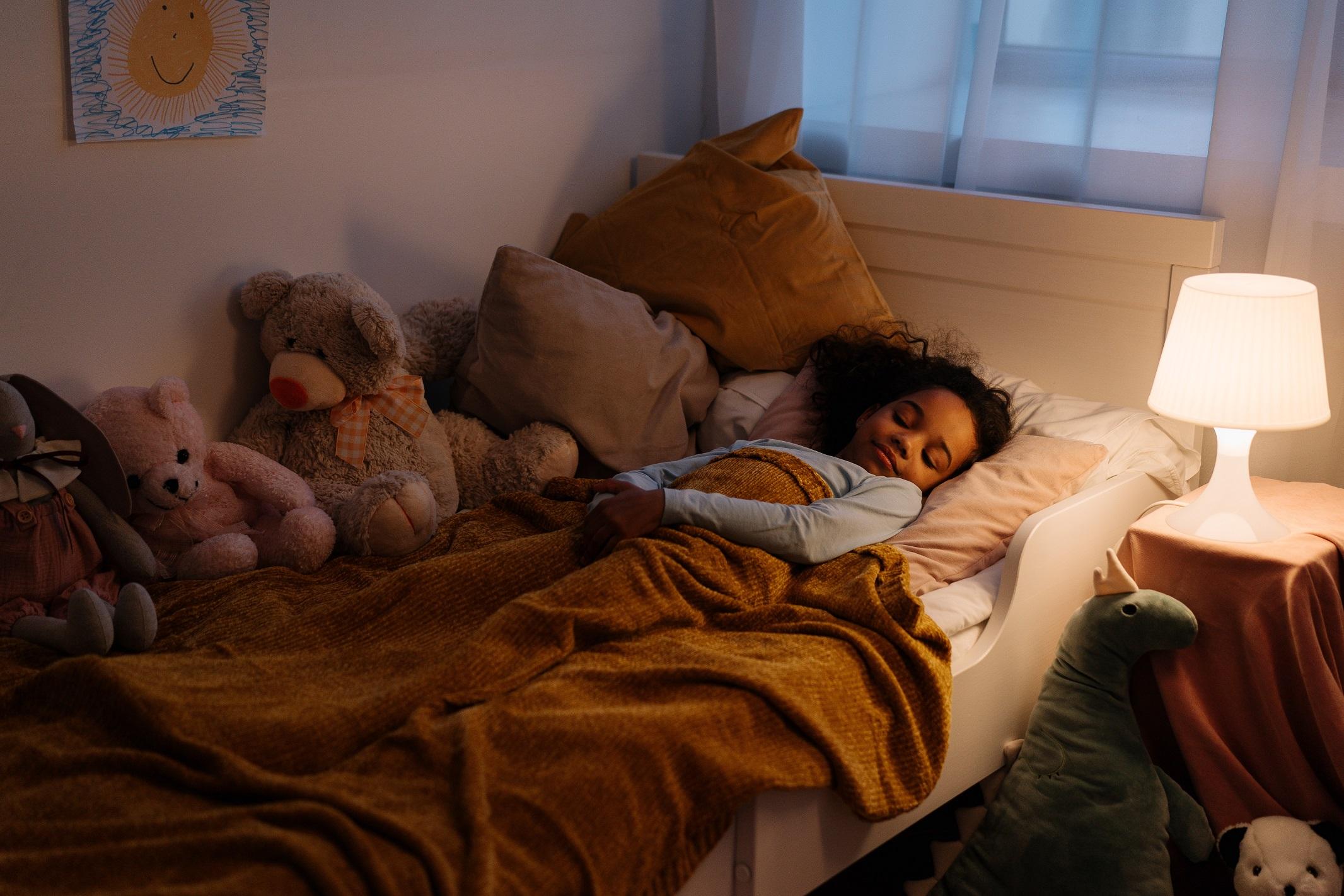- Home
- »Articles
- »Wellness
- »Meditation
- »Will Meditation Help my Child Sleep?



Will Meditation Help my Child Sleep?
7 July 2023
Children can be overwhelmed at school, in social situations or with difficulties they face in life like divorce or bereavement. This can impact their sleep. Meditation gives them coping mechanisms and helps them return to living in the moment. Practising meditation regularly trains their mind and body to rest.
Calming Down Before Bedtime
Practising meditation regularly has been shown to help children sleep. If you can create a warm, loving environment where kids feel safe and at ease they will be able to drift off to sleep easily. Calming racing thoughts is a big part of this.
Physically active meditation that includes stretching and yoga movement helps children release excess energy in preparation for sleep. They can bring their attention within by focussing on their breath during a body scan to dissolve tension and relax muscles. They can be active in their breathing and focusing on that distracts them from upsetting or busy thoughts.
Meditation In Nature
Time in nature in contrast to time on screen is meditative and enables children to use multiple senses to return to the moment. Try to build it in after school in preparation for rest. They can watch birds as well as listen to birdsong, smell freshly cut grass or skim pebbles across a pond. Meditation does not have to be cross-legged in a silent room, in fact it works better if children can be a little active in it.
Children’s meditations often take advantage of their active imaginations to transport them to a soothing situation like lying on a beach, listening to the waves or to a forest with the wind gently rustling the trees. The stories engender peaceful feelings and calm rather than overstimulating them with action and adventure.
Meditation reduces concerns as it causes children to focus on restorative and relaxing breathing. By relieving anxiety and stress they are more likely to fall into a healing sleep. They will sleep more deeply and for longer. They can then approach the following day with more confidence and calm behaviour.
Meditation In The Bedtime Routine
You can adapt your existing bedtime routine. If you read to your children, be sure to choose books without too much drama. Use a soft voice and read slowly. There are many recorded stories that children can choose from. You can just have it playing in the background on a regular basis so it becomes a cue for settling down.
Let children have a say in how they organise themselves for bed, which toys they like to have with them and what lighting they prefer. Help them notice the softness of the sheet, the texture of a blanket. Even the colours of the walls can make a difference. When they feel they have control they will be calm and able to relax into a restorative sleep.
Once children have mastered a regular practice for getting themselves off to sleep they will sleep more deeply. As the quality of their sleep improves their behaviour and confidence during the day improves so they have less difficulties to face at bedtime. The ability to comfort themselves is a life skill that they will be able to draw on in all sorts of situations in the future.
